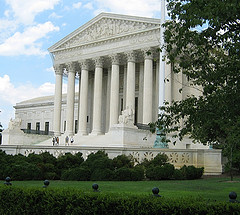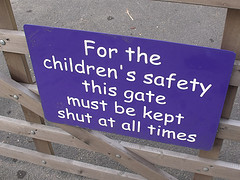Copyright 2007-25 Digital Media Law Project and respective authors. Except where otherwise noted,
content on this site is licensed under a Creative Commons Attribution-Noncommercial-ShareAlike 3.0 License: Details.
Use of this site is pursuant to our Terms of Use and Privacy Notice.
content on this site is licensed under a Creative Commons Attribution-Noncommercial-ShareAlike 3.0 License: Details.
Use of this site is pursuant to our Terms of Use and Privacy Notice.


 By now you might have heard about
By now you might have heard about  On Feb.
On Feb. Shortly after the Obama Administration
Shortly after the Obama Administration  While doing some research on recent media law suits here at the CMLP, I came across a particularly interesting case involving a dispute over the ownership of a Twitter account:
While doing some research on recent media law suits here at the CMLP, I came across a particularly interesting case involving a dispute over the ownership of a Twitter account: 
 A bit of good news for those of us keen on open government: The Senate Judiciary Committee today voted 11 to 7
A bit of good news for those of us keen on open government: The Senate Judiciary Committee today voted 11 to 7  The Federal Judicial Center
has released a
The Federal Judicial Center
has released a  On February 7, 2012, the
On February 7, 2012, the  A few weeks ago,
A few weeks ago,  The day of protest against the now (hopefully) infamous "Stop Online Piracy Act" (SOPA) and "Preventing Real Online Threats to Economic Creativity and Theft of Intellectual Property Act of 2011" (PROTECT IP Act, or PIPA) has ended.
The day of protest against the now (hopefully) infamous "Stop Online Piracy Act" (SOPA) and "Preventing Real Online Threats to Economic Creativity and Theft of Intellectual Property Act of 2011" (PROTECT IP Act, or PIPA) has ended.  Looking to make their brand “a little more memorable,” the News Licensing Group is now
Looking to make their brand “a little more memorable,” the News Licensing Group is now 
 Given the hoopla it caused
Given the hoopla it caused  By now, it is a given that many journalists have a regular presence on social networking services. The value of social media for gathering information, developing the journalist’s public persona, and promoting the journalist’s work is well-recognized.
By now, it is a given that many journalists have a regular presence on social networking services. The value of social media for gathering information, developing the journalist’s public persona, and promoting the journalist’s work is well-recognized. It's been
It's been 
Description:
On January 5, 2012, a grand jury convened in the United States District Court for the Eastern District of Virginia issued an indictment against Megaupload Limited, its affiliate Vestor Limited, and principals Kim Dotcom (a resident of New Zealand and Hong Kong, and a citizen of Finland and Germany), Finn Batato (a citizen of Germany), Julius Bencko (a citizen of Slovakia), Sven Echternach (a citizen of Germany), Mathias Ortmann (a citizen of Germany and a resident of Hong Kong), Adrus Nomm (a citizen of Estonia), and Bram van der Kolk (a citizen of the Netherlands and New Zealand).
The indictment alleges that the organization and its principals were engaged in a systematic conspiracy to commit and profit from copyright infringement, through operation of the megaupload.com domain name and its affiliates, including megavideo.com. According to the indictment, before its seizure, Megaupload operated as a "cyberlocker" or file hosting service website, where users were able to upload content to Megaupload servers and receive a unique URL which identified where the file could be downloaded later. Megaupload did not charge users for the basic service, and offered a premium subscription that featured faster bandwidth and fewer limitations on accessing the content stored. The website also featured an "Uploader Rewards" program, which gave monetary compensation for users that uploaded especially popular files to the system. Specific allegations are made stating that the defendants directly copied material without permission, helped others commit copyright infringement, received a direct financial benefit from infringement, and induced others to commit copyright infringement.
The indictment lists five criminal counts, all related to the underlying allegation of criminal copyright infringement. In addition to criminal copyright infringement (17 U.S.C. §506 and 18 U.S.C. § 2319), the indictment alleges conspiracy to commit racketeering (18 U.S.C. § 1962) by being engaged in an enterprise to commit criminal copyright infringement, conspiracy to commit money laundering (18 U.S.C. § 1956) by transferring money that constituted the proceeds of criminal copyright infringement, and aiding and abetting criminal copyright infringement (18 U.S.C. § 2). The indictment alleges that Megaupload did not designate a copyright agent, as is required under the "safe harbor" of the Digital Millennium Copyright Act (17 U.S.C. § 512), and that Megaupload would deliberately avoid taking down an allegedly infringing file based on a infringement notice, opting instead to only delete the link to the file on which the complaint was based.
According to the New Zealand Herald, Dotcom, Batato, van der Kolk, and Ortmann were arrested on January 19, 2012. On January 27, 2012, the Department of Justice filed a letter informing the defendants and the court that the DOJ had conducted a search of Megaupload service providers Carpathia Hosting, Inc. and Cogent Communications, Inc. in Virginia and the District of Columbia. The DOJ had copied the files from servers licensed to Megaupload, and informed the court that the hosting companies may begin deleting the contents of those servers beginning on February 2nd. On February 1, 2012, the Electronic Frontier Foundation filed a letter to the parties and the court on behalf of an undisclosed client, asking the court to preserve the material stored by Megaupload at the direction of the website's users, noting that many individuals had relied on the service for innocent, noninfringing storage of content. According to a Twitter post made by Megaupload Limited's attorney, the hosting services have agreed to temporarily preserve the servers until an agreement can be reached on how to preserve the material stored at the direction of innocent users.
The extradition process is currently underway for defendants arrested in New Zealand. According to BBC News, Mr. Dotcom was denied bail based on flight risk concerns.